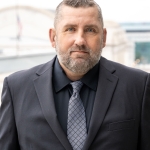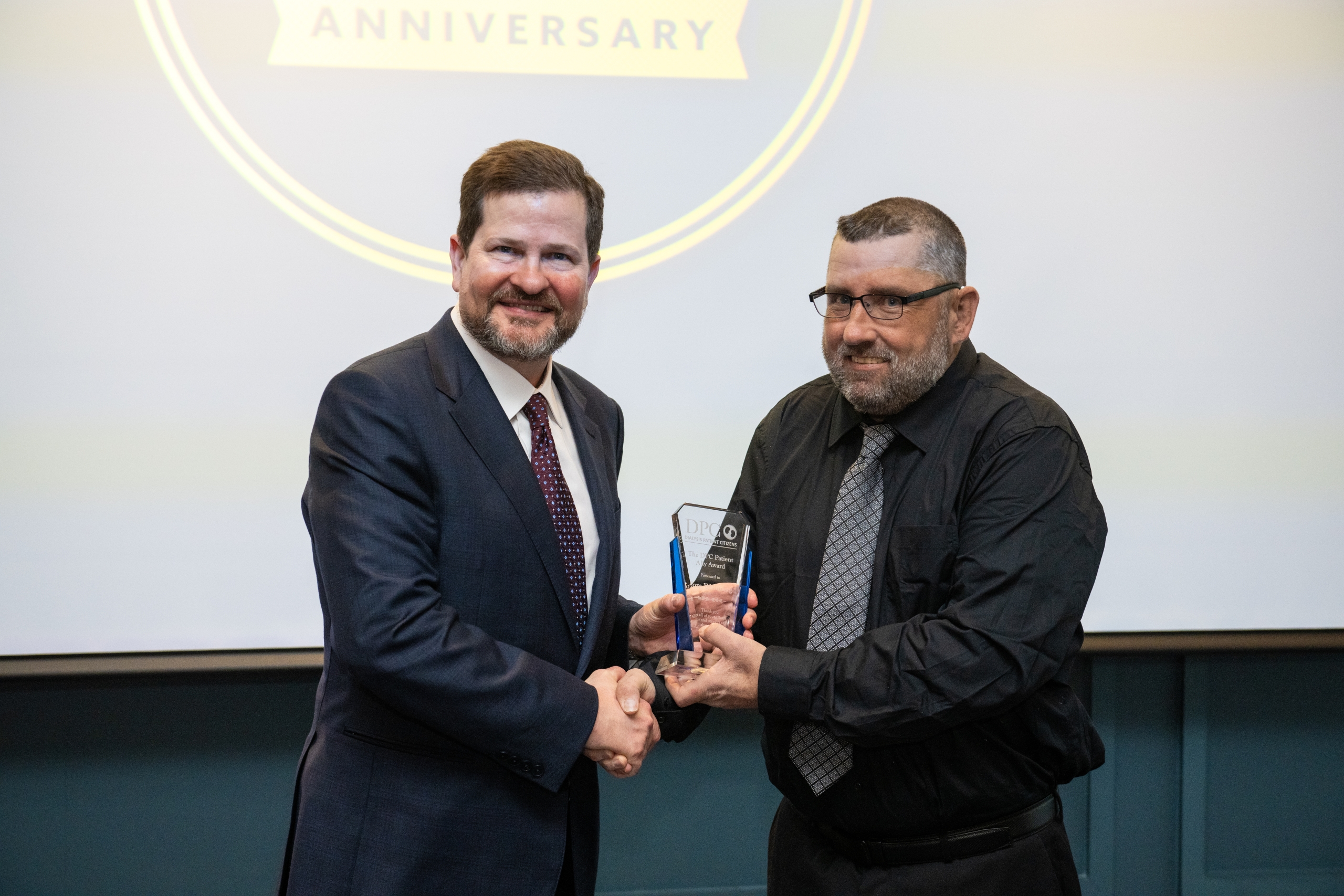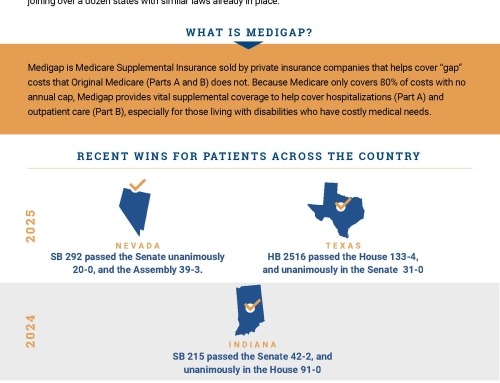
Adam Goldstein, DPC Board Member
When I was 19, I had my whole life planned out, but cancer had other plans. I survived, but not unscathed. The chemotherapy that saved my life also damaged my kidneys. I was diagnosed with kidney failure and began dialysis soon after. For years, I was determined to push forward and live “normally.” I got a transplant. It gave me back a sense of independence, a sense that maybe life would stop orbiting around hospitals and lab results. But as many of you know, a transplant isn’t always a cure. Mine eventually failed. And so, I returned to dialysis.
That was 2009. Since then, I’ve spent many, many hours in a dialysis chair. There have been days when I couldn’t catch my breath, when I didn’t know if I could keep going, when the system – insurance red tape, clinic staffing issues, and other challenges – seemed as draining as the illness itself. I’ve lived the emotional weight of chronic disease. I’ve lost a career I loved. I’ve had to reimagine what “being strong” means.
And yet, I’m still going. And I’m still hopeful.
What keeps me hopeful is that I’m not alone. Along with my loving family, I’ve found a community. Not just in the nurses and techs at my dialysis clinic who have become part of my life, but in places I didn’t expect – like Dialysis Patient Citizens (DPC), an organization that has helped give voice and purpose to patients like me.
DPC understands that hope isn’t a passive emotion. It’s a daily decision. It’s the courage to speak up when issues need fixing. It’s the strength to advocate not only for ourselves, but for the next person who walks into a clinic scared and unsure of what comes next.
Through DPC, I’ve learned that the policies that shape our care are not written in stone…they’re written by people. And people can listen. I’ve met other patients who have turned their pain into advocacy. I’ve met lawmakers who care. And I’ve learned that by sharing our stories, we don’t just build awareness. We build change.
There are still so many challenges. Too many patients under 65 can’t access supplementary insurance coverage. Too many lose their private insurance when they need it most. Too many go without the basic security of knowing their treatments will be covered. But if there’s one thing I’ve learned from my journey, it’s that despair is never the end of the story—especially when we face it together.
Dialysis has changed my life. But so has community. So has advocacy. So has hope.
To anyone reading this who’s new to dialysis, or who feels isolated or overwhelmed: you’re not alone.
Your story matters. And together, we can shape the future for dialysis patients.




